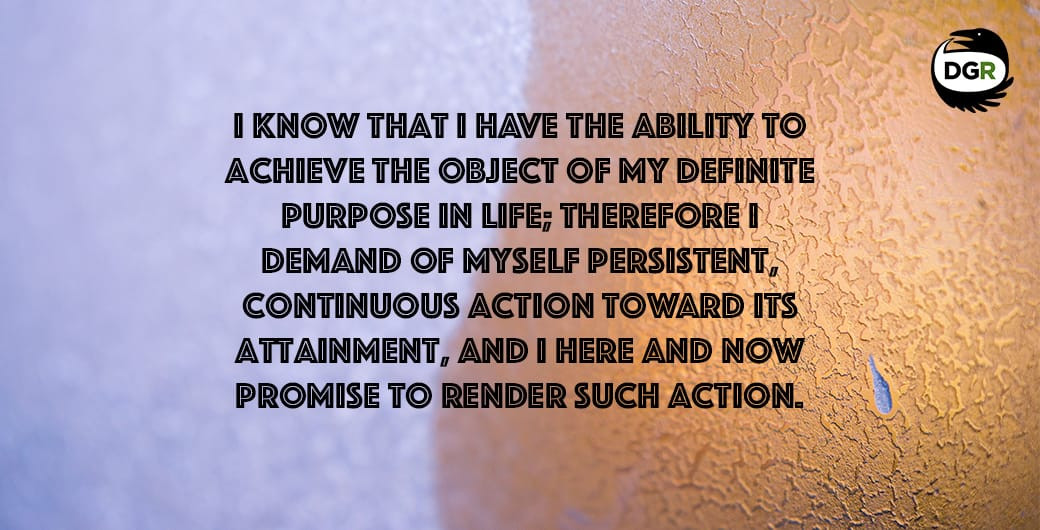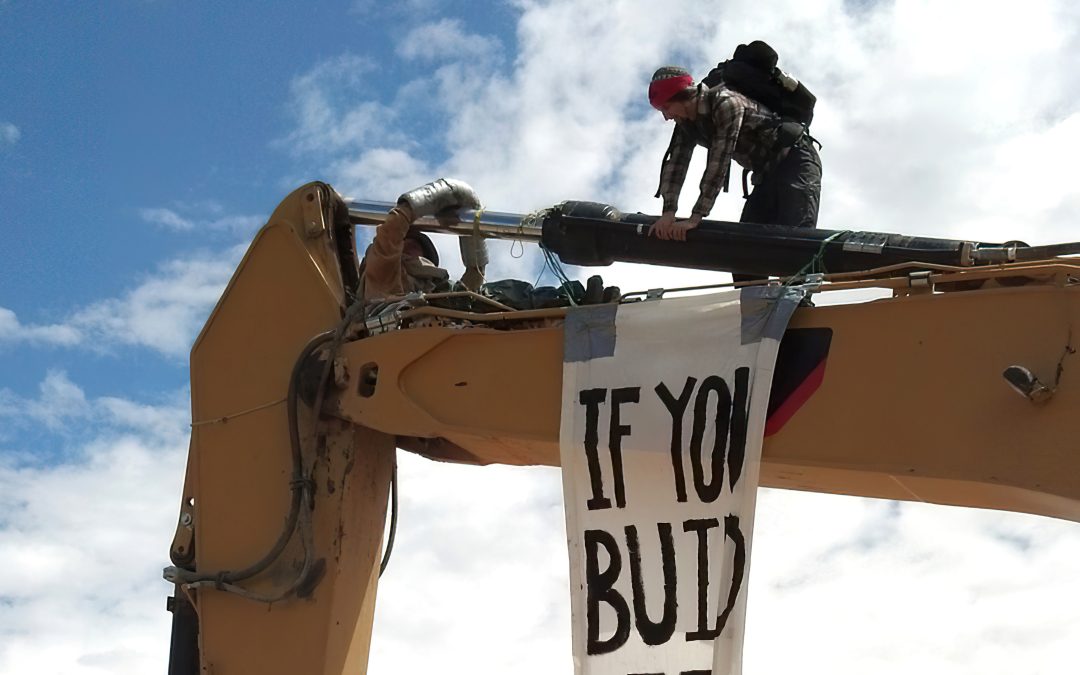How to Become and Activist and Organize Your Life for Resistance
By Max Wilbert
There is a spectrum of involvement in political organizing.
It begins with awareness of the issues. Then, a person may wish to volunteer and contribute to a cause. Eventually, if commitment and experience continues to grow, a person can begin to be a leader and true organizer, bringing other people together and coordinating work that falls into the three categories of resistance efforts [Ed. note: see our next article this Friday for more on these categories].
Ideally, political organizing should be conducted inside an organization. Organizations help us build power by forcing us to clearly define goals, bring people together, create structure and accountability, and evolve over time. Working in a group also requires more of us as individuals; we learn to work better with others, get feedback on our approach, and are exposed to different ways of thinking.
When I first got involved in Deep Green Resistance more than a decade ago, I began to ask myself, “how do I contribute?” First, I found simple ways. I posted to social media, washed dishes at gatherings, and participated in discussions to build community. I shared resources that I found interesting, contributed short articles and blog posts, and donated $5 per month — not much, since I was very poor at the time, but an important symbol of my commitment.
I also worked to educate myself as much as I could, reading books about historical resistance movements, community organizing, fundraising, environmental issues, and of course the Deep Green Resistance book.
Whenever there was an opportunity to step up and volunteer for something, I tried to take it. Over time, I built more experience and confidence, and I started doing more.
Getting started with local and regional organizing
When I moved to a new town, I began by organizing a chapter of DGR there. I talked with leadership, made us a website, and started sharing information about local and regional environmental issues, learning about them as I went along.
I started attending rallies and protests with homemade signs. I met some people who were interested and worked to recruit them into the organization. We held several events, such as meetings, film screenings, and so on. Some were attended by only one or two people. But this experience helped me learn, and eventually I organized a full two-day event including speakers from a half-dozen organizations and regional tribes, which was attended by 30 people. I was learning.
When I head about a radical direct action campaign in the area, I got involved. I started going to meetings, taking notes, doing research, and contributing as much as I could. We visited the site of a proposed fossil fuel project, and got to know the area. I fell in love with the land and started to write essays. As the campaign went on, I had a chance to participate in several direct actions and risked arrest.
Soon, I redirected my energy towards another environmental issue in my region that was less well-known.
This period I’m describing ended about eight years ago. Since then, I haven’t stopped learning. I thought it might be useful to share this story with you all to help you envision yourself going through a similar process.
Here are a few things I’ve tried to keep in mind throughout this time period to deliberately organize my life for resistance.
1. Cultivate passion
The most important thing is to keep the fire burning. I fall in love with the natural world over and over again. And my heart breaks and I get angry over and over again when I see the world being destroyed. This is the foundation of everything.

2. Learn
Effective resistance is a skill, not an innate trait. If I study, practice, and reflect, I will become more skilled over time. I work to gain theoretical (analysis, history, philosophy, writing, etc.), interpersonal (communication, conflict mediation, community organizing, fundraising, etc.), and practical (self-defense, wilderness survival, climbing, navigation, cooking, etc.) skills.
3. Find flexible and stable work
Both poverty and professional-workaholism are weapons of capitalism. Capitalism is set up to keep us locked into the prison of 40-hour work weeks and the nuclear family model. To have maximum time and energy for resistance, I try and find flexible work (self-employed if possible) and minimize my expenses by living an alternative lifestyle.
4. Build a supportive network and focus on your health
I surround myself with people who reflect my values and help me expand my thinking. Cultivating good relationships and personal health gives me vitality and allows my energy to match my passion. I try to distinguish between things that feed my soul and things that are a waste of time so I can prioritize resistance work.
5. Don’t give up
I am always looking for better ways to do things and do not hesitate to self-criticize and change course.
Max Wilbert is an organizer, writer, and wilderness guide. He is the author of two books, most recently: Bright Green Lies: How the Environmental Movement Lost Its Way and What We Can Do About It (Monkfish 2021 — co-authored with Derrick Jensen and Lierre Keith).


I am horrified at what is and has been happening in our country re: the slaughter of innocent lives, and at the same time heartbroken about what if anything is being done about it! Isn’t there anyone in the leadership of government that will consider trying in some way to stop this insanity?
We can’t rely on government to take substantive action. In the United States, both parties are deeply committed to economic growth at the expense of the planet. Change will come from the people (AKA, us).
Governments play the big role for conditions of the planet and life on it.
Just a few thoughts Max, based on your analysis and my 50 years of activism.
Key aspects of activism:
1. Passion – without passion/commitment the energy will not be there. However, passion can become very draining so time-out needs to be factored into activism.
2. Learning – base all strategies and tactics on evidence and science. Double check all facts as credibility is easily lost if statements are found to be incorrect. Self-criticism every day is also essential.
3. Supportive network – it is most important to have a small but close supportive network of family and/or friends. This is important for not only for energy but also for health reasons. This network is also important for questioning and balancing ideas etc.
4. Optimism – negative or pessimistic thinking can ultimately undermine all motivation and energy.
5. Think strategically, not just tactically – in other words, think how one action will lead to the next and the next … to, ultimately, bring about change. In undertaking this it is fundamentally important to be clear about short, medium and long-term objectives.
6. Be imaginative, think ‘outside the square’ – lateral thinking.
7. Humour – maintaining a sense of humour is essential.
Well said, Geoff.